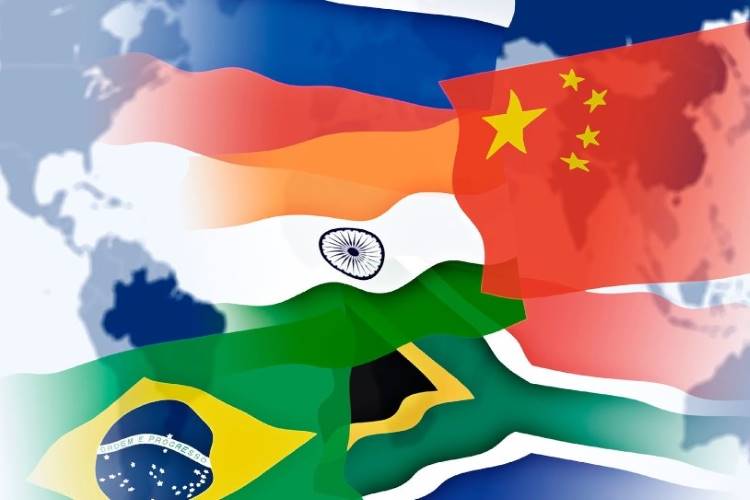
Brazil, Russia, India, and China came together in 2009 to present an alternative vision of the world order, contending that the prevailing US-led order was unfair and exclusive. The Bretton Woods institutions established in 1944 are dominated by the US and overrepresented by Europe, creating a privileged club that favored the wealthy nations, they argued. These institutions marginalised emerging economies by neglecting their aspirations and concerns. Despite initial skepticism, BRICS has persevered, accomplishing tangible results in geopolitics rather than mere rhetoric.
The acronym BRIC was coined by Jim O’Neill, an economist at Goldman Sachs. South Africa joined in 2010, transforming the group into BRICS. At the 2023 Summit in South Africa, 19 countries including Mexico formally expressed their desire to join the bloc. Although initially seen as an incongruous gathering with little in common, lacking a coherent agenda and financial resources, the group has defied predictions of collapse and irrelevance. Today, it is regarded as one of the world’s most significant economic blocs, representing over a quarter of global GDP and more than 40% of the world’s population.
READ I India’s economic reforms: Crawling to the finishing line
Economic asymmetry at BRICS
Membership in the group may not be the sole reason for the economic performance of its constituent countries. India’s high growth trajectory stems from its economic policies, while China is believed to be approaching an economic plateau. Russia faces an economic crisis, South Africa is still recovering from years of misrule by Jacob Zuma, and Brazil is grappling with a severe economic crisis exacerbated by misguided economic and political decisions worsened by the Covid-19 pandemic. The OECD predicts Brazil’s economic growth to be a mere 2.8% in 2022 and 1.2% in 2023.
In other words, asymmetry characterizes BRICS, a feature not uncommon in organisations like NATO, the EU, or ASEAN. However, a challenge lies in reimagining BRICS not as a counter to the West but as a force for rebalancing.
In the current scenario, Russia under President Putin is viewed as an untouchable by the US, especially after the invasion of Ukraine. As Kissinger cautioned, the demonisation of Putin is not policy but rather the absence of one. Instead of pursuing reconciliation and facilitating a collaborative relationship, especially with Europe, the US has chosen confrontation by stationing nuclear weapons, provoking retaliation from Moscow.
China, likewise, is perceived as a threat to US hegemony, prompting determined efforts by Washington to isolate and contain both Russia and China. This highly tense situation could potentially lead to a Sino-Russian alliance against the US and its Western allies, escalating into a global crisis. With Brazil’s left-leaning President Lula, ideological differences with the US. Mexico’s intention to join BRICS is primarily driven by deteriorating relations with Washington, especially regarding migration and perceived interference in domestic affairs.
The circumstances suggest that BRICS may evolve into an anti-US grouping, positioning itself as an alternative power center. China, under Xi Jinping, has already expressed its aspirations and is heading towards confrontation in the Indo-Pacific and beyond.
Strategically, China seeks partnership with Moscow, particularly now, to signal its adversarial intent to the West. However, Xi Jinping also recognises that confrontation with the West, particularly the US, would be strategically disadvantageous, leading to the loss of access to Western markets on which it relies.
This is where India can play a significant and strategic role in BRICS. Consider the following facts: India enjoys exceptional warmth with Washington, a relationship currently unparalleled. Prime Minister Modi is set to receive a red-carpet welcome shortly. Simultaneously, India has refrained from adopting an anti-Moscow or anti-Putin stance, whether in terms of weapons acquisition or oil purchases, and has not condemned Russia over the Ukraine conflict.
Regarding China, while India remains open to bilateral talks to resolve outstanding issues, it actively participates in QUAD (Quadrilateral Security Dialogue) and maintains strategic relations with ASEAN as a group and its member states. India has defense partnerships with regional countries like Vietnam and the Philippines, robust relationships with Brazil, Mexico, and South Africa, and has demonstrated its willingness to militarily defend its territory if necessary, conveying a message to Beijing.
The US, Russia, and China are aware of India’s strong relationships and reliability with Brazil, Mexico, and South Africa. Recognising India’s strategic role, the US seeks to engage with India to prevent further uncertainty and turbulence, particularly after the devastation caused by the pandemic. President Biden is expected to discuss ways to address the troubled waters during his upcoming meeting with Prime Minister Modi later this month.
The emergence of BRICS is seen as a threat to the US pre-eminence emanating from the dollar’s strength as the world’s reserve currency. BRICS foreign ministers’ meeting at Cape Town engaged in some anti-dollar rhetoric, but the grouping is no position at present to challenge the greenback.
There is no need to reimagine the role of BRICS. It was never conceived as a confrontational counterforce to existing power dynamics, despite Western media portraying it as such. BRICS was always intended to reflect changing realities and serve as an instrument to supplement and complement the vision of a collaborative world system. The current circumstances present India with the perfect opportunity to assume the role of a seeker of global good.
(Pradeep S. Mehta is Secretary General, CUTS International, a global public policy research and advocacy group. Ambassador Amit Dasgupta is Distinguished Fellow at CUTS International and Australia India Institute.)
Pradeep S Mehta is the Secretary General of CUTS International, a leading policy research and advocacy group. He is a featured columnist with several leading publications in the country.

